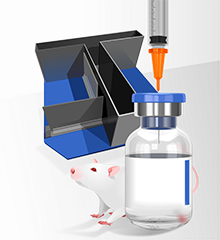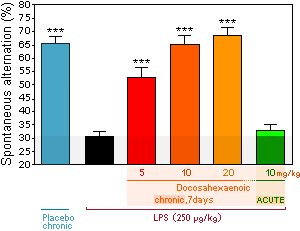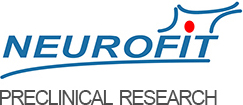inflammation-related cognitive deficit
Newsletter # 97

In vivo studies
■ Neurofit’s preclinical data using inflammation-based cognitive deficit model shows that 7 days treatment with DHA reinstate the cognitive performance of mice. This further supports the potential benefit of DHA supplementation in inflammatory brain diseases. Noteworthy that a single acute administration of DHA fails to produce any beneficial effect which may suggest that either a sufficient exposure is needed or the involved mechanism of action of DHA takes some time to establish.
2: https://doi.org/10.1080/10408398.2018.1425978
-

***, p ≤ 0.001 significantly different as compared to LPS / Vehicle group
(n = 10 mice per group). -
The graph shows a marked reduction in the level of spontaneous alternation of LPS-mice (black column) during the T-maze task as compared to that of control mice (blue column). The decrease in the alternation reflects stereotypic and repetitive behavior, common symptoms in dementia patients 3 .
■ The treatment of LPS-mice with chronic but not acute DHA (green column) significantly increases the alternation performance of LPS-mice.
3: https://doi.org/10.1177/1533317513481094
Get in touch


 PREVIOUS
PREVIOUS